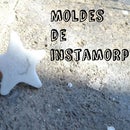Introduction: DIY Macropad
Material
-Buttons
-LEDs
-Diode Zener
-Arduino Pro Micro
-Shift register 74hc595
-Resistors
Tools
-Soldering Iron
-Tin
Software
-Eagle
A macropad is a keyboard with programable keys.
Step 1: Explaining a Matrix
Keyboards usually are wired as a matrix, matrix scanning is a common technique used to expand the number of inputs or outputs beyond the number of available pins. If you want to know more visit this site:
Step 2: Cherry Switches
The switches used in mechanical keyboards are called Cherry MX switches.There are 4 major types of Cherry MX switches - red, black, brown and blue.
Cherry MX Red
Actuation force: 45g
Feel: Linear
Preferred use: Geared towards gaming
The most popular type of mechanical switches, Cherry MX Reds are mostly used for gaming. They are light to press, which is up to personal preference.
Cherry MX Black
Actuation force: 60g
Feel: Linear
Preferred use: Gaming.The high actuation force helps prevent accidental key presses.
Cherry MX Brown
Actuation force: 45-55g
Feel: Tactile bump
Preferred use: Mix of typing and gaming. Considered a middle ground between typing and gaming switches.
Cherry MX Blue
Actuation force: 50-60g
Feel: Clicky, tactile bump
Preferred use: Great for typing! have a tactile bump that can easily be felt, with the resistance being similar to your average keyboard.
if you need more information about the switches visit this page https://mech-keyboards.weebly.com/cherry-mx-switches-explained.html
Step 3: Design
We recommended to use Eagle.
You can follow this tutorial step by step.
Step 4: Add Libraries
Required libraries
Cherry MX Eagle Library
https://github.com/c0z3n/cherrymx-eagle
Adafruit Library for Eagle
Step 5: Design an Schematic
Add your stuff to play.
First you have to open a schematic in Eagle, then create a grid and choose the units of measure to be used in the project.
Then, the buttons and components that will be used are added and ordered as desired. Parts are renamed and unnecessary labels are removed.
Subsequently, the components are correctly connected, being careful to order them properly.
Attachments
Step 6: Create a PCB Layout
Once you are done with schematic, create a part PCB and order buttons.
When the PCB design is finished it is sent to print.
Attachments
Step 7: Add Some Nice Render
Here you can learn how to edit a PCB, add a render and so.
I got the .step from GrabCAD
Step 8: Components
It is recommended to test all components before soldering.
Having the PCB printed, and after testing the components to ensure the operation of each one, we proceed to solder them to the PCB.
Step 9: Add Keycaps
You can use any keycap designed for cherry MX.
Step 10: Upload Code
In this project we use Arduino Pro Micro wich is a variation of the Arduino Leonardo.
For this project, keys are sorted as
1,2,3,4,5
tab,q,w,e,r
ctrl,d.f.b. spacebar
z,x,c,v,esc
you can put any character you want including macros.
Attachments
Step 11: Enjoy the Keyboard
You can test your keypad with notepad or similiar, we suggest to try before gaming , sometimes you need more dalay or faster reaction. and happy making!






